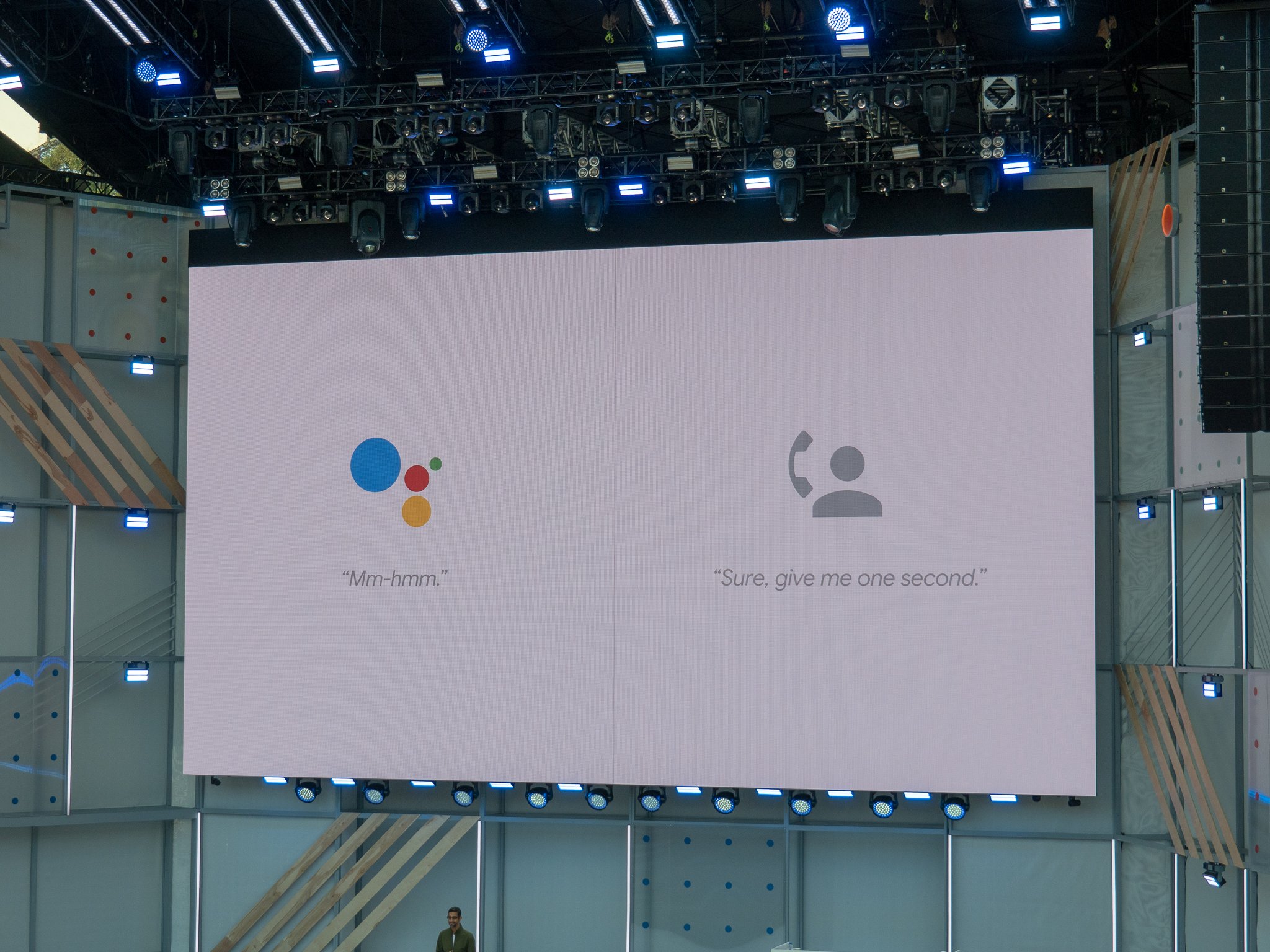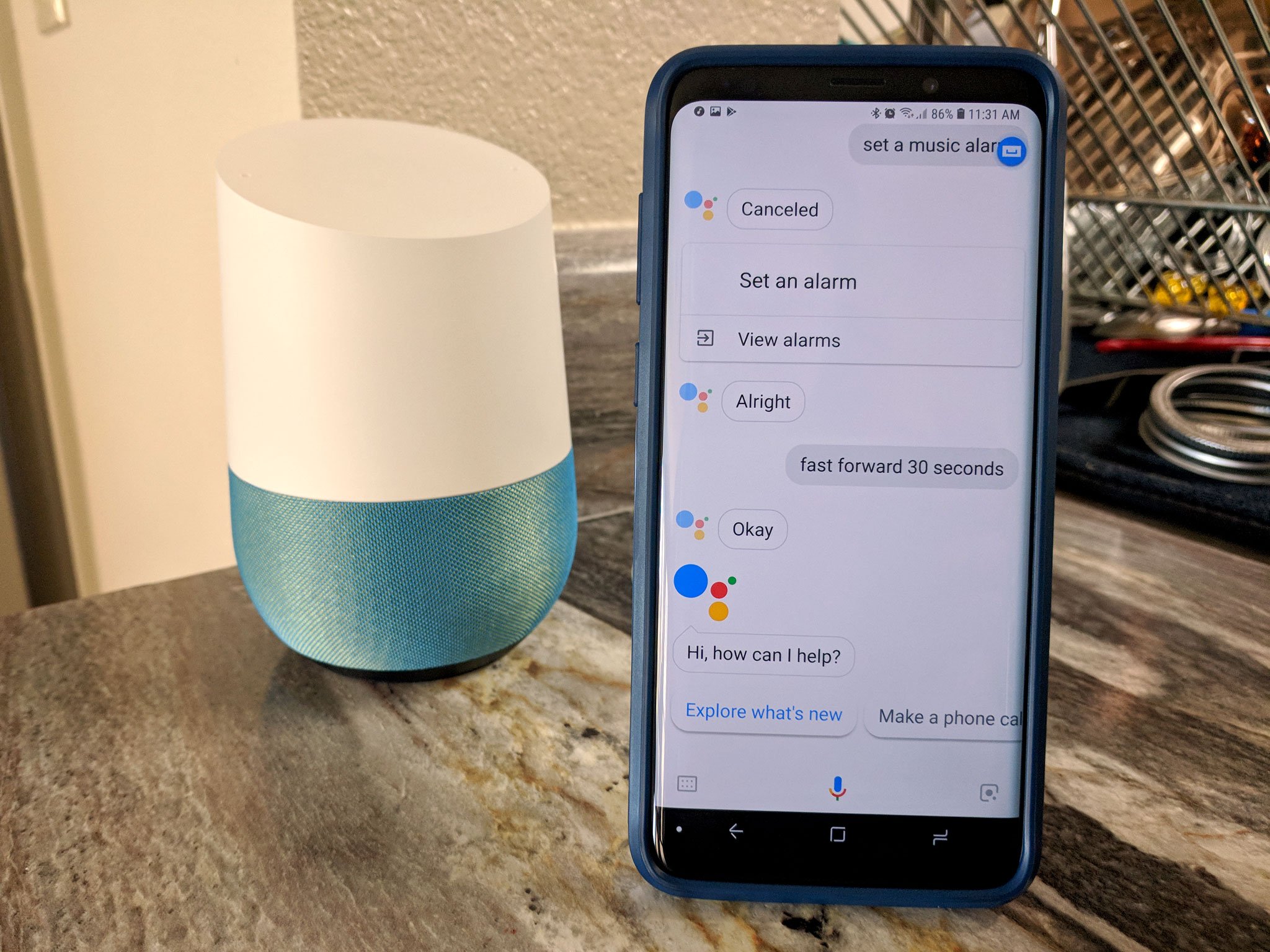Step aside, Hal.
By now, you've probably heard a thing or two about Google Duplex. During its annual I/O developer conference on May 8, Google debuted its Duplex technology by showing it calling a hair salon and restaurant to make an appointment and reservation on someone's behalf.
In both instances, the AI was able to have a natural conversation with the human on the other end, understand what they were saying, and get everything booked just like it had been asked.
Most everyone watching this demonstration seemed to be floored about it at the time, but since then, there have been a number of articles criticising Google for even creating something like this and airing their concerns about what sort of impact this will have on our world.
Although I understand some of the apprehension surrounding this technology, I'm beyond excited for this tech to make its way into people's hands. Here's why.
Duplex is already jaw-dropping at such an early stage
It'll likely be a while before Google Duplex makes its way into a consumer-focused product that's available for anyone to use, and while that long wait is a bit of a bummer, it makes Duplex that much more impressive.
Just imagine where Duplex will be in a year's time.
Google's clearly not done working on Duplex and will continue to improve upon it as we inch closer and closer to its release, and when that day eventually comes around, Duplex will be even better than what we saw last Tuesday.
If this technology is already as human-sounding and capable as it is in this current form, imagine where it could be after a few more months of hard work.
Duplex is only going to get better as time goes on, and while that's something we see with a lot of Google's products, it's especially exciting here.
It can turn the Assistant into the ultimate virtual helper
Moving away from the technical side of things, let's take a look at how Google chose to show off Duplex for this first time – through the Google Assistant.
The Assistant was first announced a couple years back as a part of Google's Allo messaging app, and it's since made its way to smartphones, watches, tablets, TVs, speakers, and more. No matter where you access the Assistant, however, it always has the same intent of helping out where it can to make your life as easy as possible.
In its current form, the Assistant already does a great job at this. Asking it to turn off smart lights is easier than manually flipping switches throughout the house, ordering movie tickets with just your voice takes less time than fumbling with an app or website, and being able to set timers, ask about the weather, or call your friend without having to touch any sort of screen allows for multi-tasking that simply wasn't possible a few years back.
That theme of making your life easier is seen through just about everything the Assistant does, and with Duplex, it's going to be elevated to a point that's never been seen before.
Duplex elevates the Assistant to a level of helpfulness we've never seen from Alexa or Siri.
As necessary as they sometimes are, phone calls can be time-consuming, clunky, and a pain in the butt. However, they still need to get done.
With Duplex, we'll be able to call upon the Assistant we already know and love, ask it to make an appointment on our behalf, and not have to worry about a thing. The Assistant will use Duplex to call that business, get everything squared away, and add that event to your calendar – all while you focus on whatever else needs your attention.
That level of interaction is something only human assistants were previously capable of, and it's wild to think we're already at a point where something like this is possible.
The possibilities are endless
As exciting as all of this, we're just talking about one specific use case for this technology. Google may have only shown off Duplex calling a hair salon and restaurant, but it certainly won't limit Duplex to just those two use cases.
It's difficult to imagine exactly where else Duplex could be integrated, but at least on the subject of Assistant, there are a few things that come to mind. If Duplex allows the Assistant to call places like salons and restaurants, what about personal calls to friends and family? Say you want to make plans for a movie or tell your spouse you're on the way home from work. Why wouldn't Duplex be able to handle these things?
Furthermore, what about when Google decides to expand Duplex beyond the Assistant? What sort of use cases could we see of this technology in Maps, YouTube, Android Messages, Gmail, etc. Why not use this Duplex voice as the default one for the Assistant? The implications for accessibility are also staggering.
There are so many paths Google can take with what it's created, and these unknown possibilities are thrilling.
Are you ready for a Duplex world?
Google Duplex is unlike anything we've seen before, and while that's admittedly a bit scary, I'm still incredibly optimistic to see how it evolves and affects our world as time goes on.
Google's already addressed that Duplex will make people aware that it's not human when making phone calls on our behalf, and I'm sure we'll see more conversations about the ethicality of everything over the coming weeks and months.
Duplex is the first technology of its kind, and I'm ecstatic to be able to experience this first hand and see where we go from here.



Post a Comment